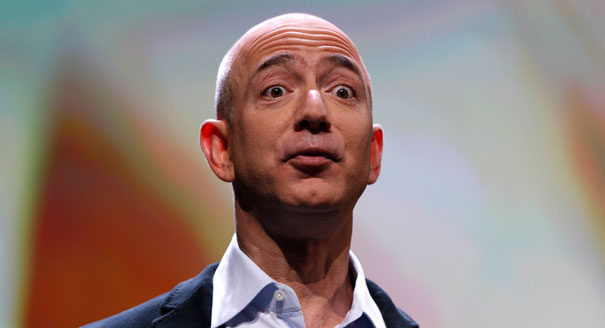It was obvious to just about everyone when Amazon launched its Fire Phone that the device was going to absolutely bomb. It didn’t offer any truly compelling features compared to other Android phones on the market, it was priced at $199 on contract and it was an exclusive to AT&T. All told, it was a baffling misstep from a company that had long prided itself in delivering good value to consumers at the expense posting high profit margins.
RELATED: Amazon’s Fire Phone might be an even bigger flop than anyone imagined
Now Fast Company has the inside dirt on just how the Fire Phone came to be and how Amazon CEO Jeff Bezos convinced himself that it was going to be a smash hit despite overwhelming evidence to the contrary.
“Based on interviews with more than three dozen current and former employees, most of whom were deeply involved with the project, the CEO drove every aspect of the phone’s creation from the outset,” Fast Company writes. “Bezos’s guiding principle for Amazon has always been to start with the needs and desires of the customer and work backward. But when it came to the Fire Phone, that customer apparently became Jeff Bezos.”
Essentially, Bezos did with the Fire Phone what Homer Simpson did when he designed his own car called The Homer: He made an overly expensive machine jam-packed with his own dream features that were appealing to himself and just about nobody else.
“In essence, we were not building the phone for the customer — we were building it for Jeff,” one source tells Fast Company.
To get the full account of this epic debacle, you should really check out Fast Company’s full piece at the source link below.






